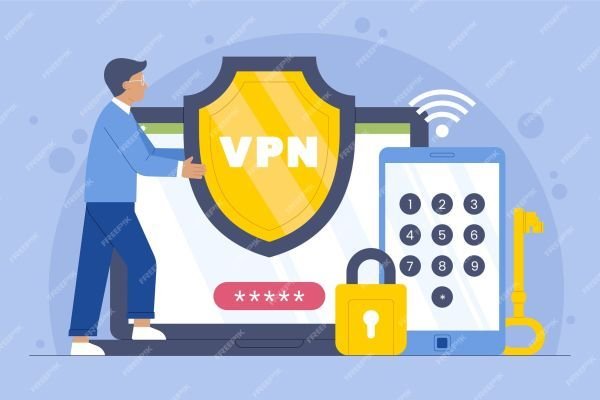The internet is an essential component of our life, connecting us to work, pleasure, and one another. However, with increased connection comes greater concerns about privacy and security. Here’s where VPN services come in, providing ways to shield our online existence. But what is driving their increased popularity? And for those who are wondering, what is proxy server and how does it differ from VPNs? Let’s dive in.

Why VPN Services Are Booming
VPNs, or Virtual Private Networks, have become household names. In the past, these tools were seen as a niche technology for tech enthusiasts. Today, they’re mainstream. Here’s why:
- Privacy Protection
A VPN encrypts your internet traffic. This means no one—not even your internet service provider—can see what you’re doing online. In a world where data breaches and surveillance are common, this level of privacy is invaluable. - Access to Global Content
Ever tried streaming your favorite show, only to find it’s not available in your region? A VPN can bypass these geo-restrictions. You can unlock content from different countries with just a few clicks. - Secure Public Wi-Fi Use
Public Wi-Fi networks are a hacker’s playground. VPNs add a layer of encryption to your connection, keeping your data safe while you sip your coffee at the local café. - Increased Awareness
More people are aware of online threats. High-profile cyberattacks and the misuse of personal data have encouraged users to take their online security seriously. VPNs are an accessible and affordable solution.
What Is the Difference Between Proxy Servers?
You may be wondering what a proxy server is and whether it’s the same as a Vpns if you’re new to security on the internet. To put it briefly, no.
A proxy server serves as an intermediary between the internet and your device. Your IP address is hidden from view but your data is not secured. Because of this, it proves useful for jobs like getting around basic geo-blocks but less successful for tasks needing complete anonymity and security.
VPNs, nevertheless, provide end-to-end encryption. They secure your information from risks like hackers and snoopers. VPNs are the favored option for high online security, even though proxies are appropriate for particular jobs.
The Best Arguments for VPN Use
Keep Yourself Anonymous Online
Your true IP address is concealed when using a VPN. Advertisers and websites are unable to create profiles based on your behavior or monitor your location.
Avoid Bandwidth Limitation
Depending on how much you use, certain internet providers throttle down your connection. By hiding your activities, a VPN makes browsing more seamless.
Avoid Censorship
Certain websites are blocked in various countries. By enabling users to get beyond these restrictions, VPNs give them the freedom to browse the internet.
Boost Your Gaming Experiences
VPNs are used by gamers to get around region-locked servers or games, minimize lag, and guard against DDoS attacks.
Choosing the Right VPN Service
The market is overflowing with VPN providers, but not all are equal. Here’s what you should look for:
Strong Encryption – Make sure the VPN uses sophisticated encryption techniques such as AES 256.
No-Log Policy – The vendor should not store records of your internet-related activities.
Speed – A good VPN strikes a mix of security and fast connection speeds.
Wide Server Network – The more servers, the more ways to circumvent obstacles.
User-friendly Interface – Choose a VPN that is basic to set up and use.
Final Thoughts
As online threats increase, so does the need for secure browsing. VPN services are no longer optional; they’re essential tools for privacy, access, and security. While proxies can handle light tasks, VPNs deliver unmatched protection and versatility.
The next time you’re browsing, think about your digital safety. A good VPN isn’t just a tech tool; it’s your partner in safeguarding your online world. Don’t wait until it’s too late – start protecting yourself today.
